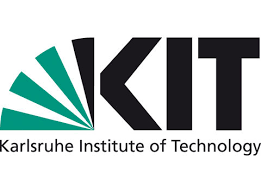Karlsruhe Institute of Technology: New course in medical technology: a bridge between people and technology
The demographic change as well as the current technology trends in the field of medical technology lead to a great need in the industry for appropriately trained specialists. The Karlsruhe Institute of Technology (KIT) has a wide range of competencies and internationally established research priorities. These form the basis for the new practice-oriented bachelor’s degree in medical technology. Subject to the approval of the Baden-Württemberg Ministry of Science, it should start in the winter semester 22/23. In cooperation with the University of Heidelberg, a joint master’s degree in medical technology is to follow.
Automation and digitization have now also found their way into medicine, for example in the use of artificial intelligence (AI) for imaging processes, in the use of robots in microsurgery or a “digital twin” in personalized medical technology. The increasing use of these modern technologies creates a great need for appropriately trained specialists. The medical technology course at KIT offers the necessary specialist knowledge to help shape this development. The medical technology engineers trained at KIT research the basics of new processes, develop the corresponding systems and their components, and conduct research to increase their efficiency. They develop control concepts, components or software.
New course in medical technology combines digitalization, electrical engineering and information technology
“By focusing on digitization, electrical engineering, and information technology, the research-oriented and practice-oriented medical technology course at KIT optimally prepares you for new technology trends and challenges in the field of industrial and clinical development of medical products,” says Professor Werner Nahm from the Institute for Biomedical Technology at KIT. This know-how is combined with a broad application knowledge from the field of medicine and medical technology as well as the acquisition of knowledge about regulations and standards. “With the degree in the bachelor’s degree in medical technology, students have the competence to translate medical problems into engineering tasks and to work responsibly under technical, regulatory,
Strong practical relevance and the opportunity to spend a semester abroad
In the six-semester restricted-admission course, students acquire universal technical foundations that open up attractive career opportunities in many industries. The course offers supporting tutorials and a direct practical relevance from the first semester, choices between industrial, research and clinical internships as well as on-site courses in hospitals and university clinics. A mobility window for international exchange at other universities, for example as part of an ERASMUS stay, is also planned for the fifth semester.
Joint master’s course planned by KIT and Heidelberg University
The bachelor’s degree is to be followed by a joint degree with the University of Heidelberg, i.e. a joint degree in which both universities award a joint certificate and certificate. The start is planned for the winter semester 24/25. The Master’s students are closely involved in clinical practice and can choose from various specialization modules.

